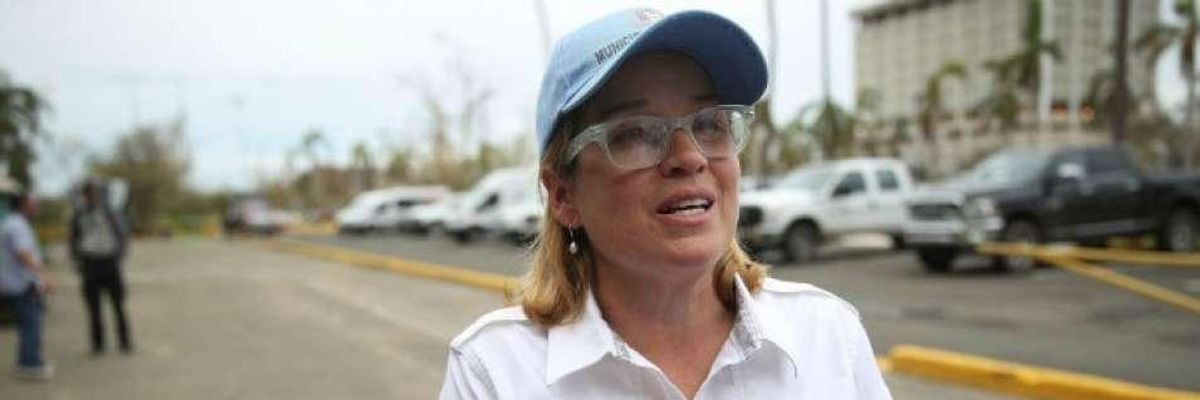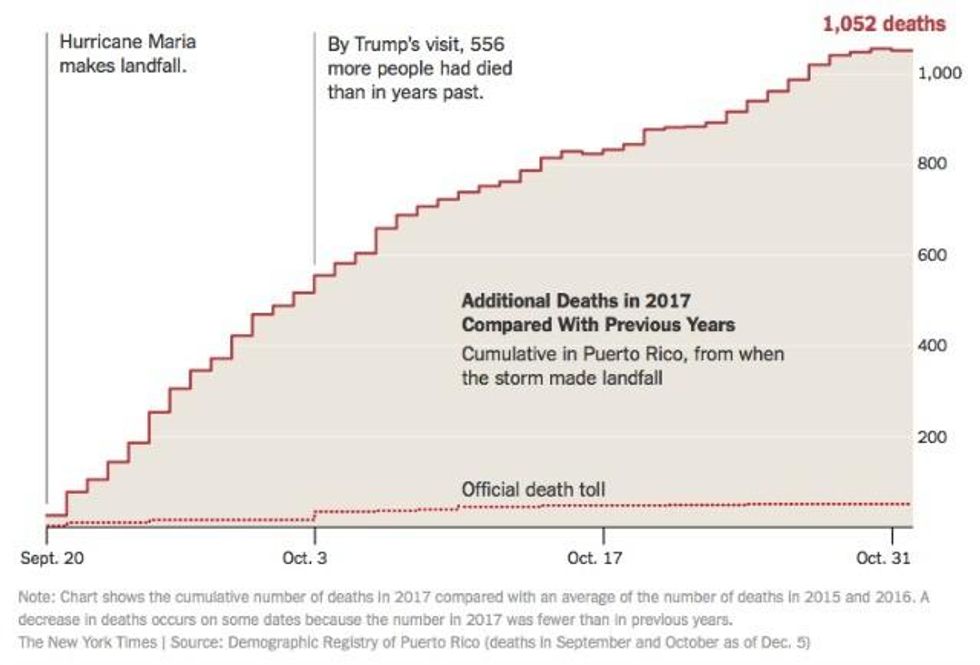San Juan Mayor Carmen Yulin Cruz blasted U.S. President Donald Trump as a "disaster-in-chief" in an interview with ABC News this week while slow recovery efforts continue 100 days after the Category 4 Hurricane Maria decimated Puerto Rico in late September.
"Where he needed to be a commander-in-chief, he was a disaster-in-chief. President Trump does not embody the values of the good-hearted American people that have [made] sure that we are not forgotten," Cruz said. "He was disrespectful to the Puerto Rican people, he was disrespectful to the American people who were leaving their homes to come help us here."
Cruz has been a leading critic of the Trump administration's response to the humanitarian crisis that broke out on the island, a U.S. territory, following the hurricane. She pointed to the suspiciously low official death count as an example of the government's inadequate handling of disaster, adding that she hopes the review recently ordered by Gov. Ricardo Rossello will reveal how many people died in connection to the storm.
"We owe it to the memory of those people to know," Cruz said, "and we owe it to the transformation of Puerto Rico: why they died, and how we can ensure that this does not happen again."
Rossello's order that the government review the official death toll, which is 64, followed a New York Times report published earlier this month that documented more than a thousand deaths on the island following the hurricane.
Meanwhile, residents of Puerto Rico are still struggling and thousands remain without electricity. Although nearly 70 percent of the island's electrical grid is generating power after being destroyed by the storm, the Associated Press reported this week that the Puerto Rico Electric Power Authority "has no way of knowing how widely electricity is being distributed because the system that measures that isn't working."
However, the AP noted that a study conducted earlier this month by a group of local engineers "estimated roughly 50 percent of the island's 3.3 million people remained without power, and "the U.S. Army Corps of Engineers has said it likely won't be until May that all of Puerto Rico is electrified."
In an interview on MSNBC Thursday night, Cruz explained that "there are various degrees of destructiveness of the botched effort" by the U.S. government to lead the island's recovery. "In San Juan things are getting somewhat better--we see the light at the end of the tunnel--but as you move away from the metropolitan areas, still, things are very touch-and-go."
After outlining the ongoing issues that residents are experiencing with accessing electricity, food, and drinkable water, Cruz concluded, "The botched effort has been insensible, it has been man-made, and has been Trump admininstration-made."


